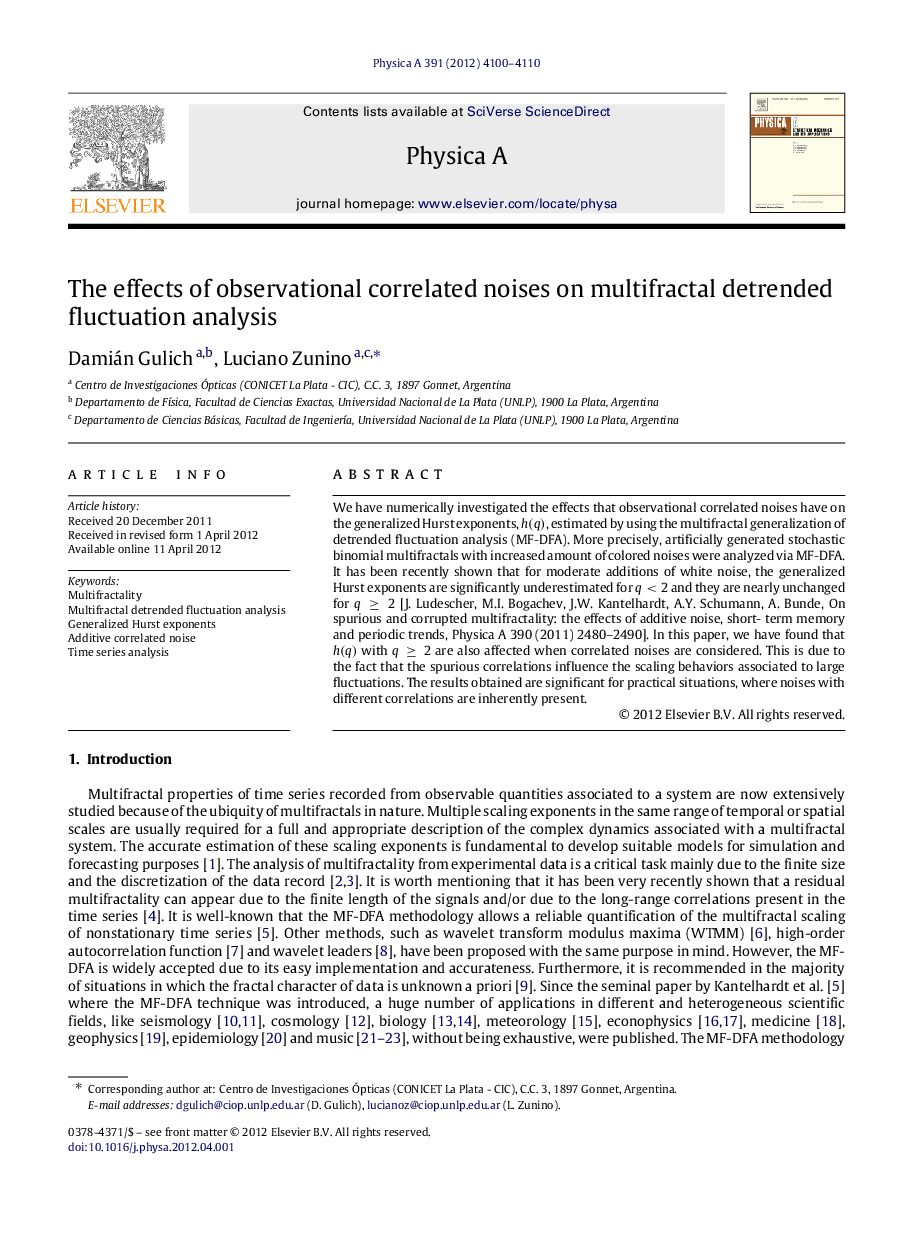| Article ID | Journal | Published Year | Pages | File Type |
|---|---|---|---|---|
| 976208 | Physica A: Statistical Mechanics and its Applications | 2012 | 11 Pages |
We have numerically investigated the effects that observational correlated noises have on the generalized Hurst exponents, h(q)h(q), estimated by using the multifractal generalization of detrended fluctuation analysis (MF-DFA). More precisely, artificially generated stochastic binomial multifractals with increased amount of colored noises were analyzed via MF-DFA. It has been recently shown that for moderate additions of white noise, the generalized Hurst exponents are significantly underestimated for q<2q<2 and they are nearly unchanged for q≥2q≥2 [J. Ludescher, M.I. Bogachev, J.W. Kantelhardt, A.Y. Schumann, A. Bunde, On spurious and corrupted multifractality: the effects of additive noise, short- term memory and periodic trends, Physica A 390 (2011) 2480–2490]. In this paper, we have found that h(q)h(q) with q≥2q≥2 are also affected when correlated noises are considered. This is due to the fact that the spurious correlations influence the scaling behaviors associated to large fluctuations. The results obtained are significant for practical situations, where noises with different correlations are inherently present.
► MF-DFA is a widely used technique to quantify the multifractal nature of time series. ► Spurious effects of additive correlated noises are analyzed. ► Generalized Hurst exponent are notably affected by observational colored noises. ► A comparison with the effect of uncorrelated noise is included. ► Our results are useful for unveiling multifractal features in practical situations.
